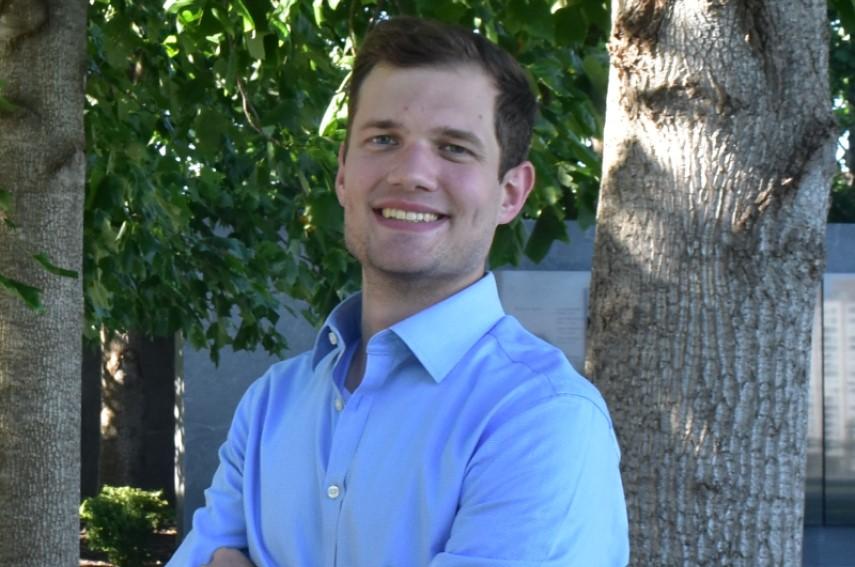-

Hear from Monica Toft, Academic Dean
Learn how Monica Toft, Academic Dean, is shaping the study of global affairs and diplomacy at Fletcher.
Hear from Prof. Toft -

Explore Fletcher academics in action
Fletcher Features offers insights, innovation, stories and expertise by scholars.
Get global insights -
Get application tips right from the source
Learn tips, tricks, and behind-the-scenes insights on applying to Fletcher from our admissions counselors.
Hear from Admissions -

Research that the world is talking about
Stay up to date on the latest research, innovation, and thought leadership from our newsroom.
Stay informed -
Meet Fletcherites and their stories
Get to know our vibrant community through news stories highlighting faculty, students, and alumni.
Meet Fletcherites -

Forge your future after Fletcher
Watch to see how Fletcher prepares global thinkers for success across industries.
See the impact -

Global insights and expertise, on demand.
Need a global affairs expert for a timely and insightful take? Fletcher faculty are available for media inquiries.
Get in Touch
Advancing Military Personnel Policies and Practices
Matthew Reitz (MALD 21) is working with the U.S. Department of Defense, looking for new ways to recruit and retain soldiers.

When Matthew Reitz (MALD 21) was accepted at Fletcher, he had a deep interest in Japanese culture, a passion for politics, and a sense that he wanted to pursue a foreign service career centered around U.S.-Japan diplomacy.
Today, he finds himself following a different path, one focused on national security.
“While my initial interest upon entering Fletcher was in U.S.-Japan relations, including public diplomacy and the security alliance, the opportunity Fletcher gave me to learn from national security practitioners, like our Military Fellows, was a gateway into learning about military personnel policy,” says Reitz. “Under the mentorship and guidance of Professor Linnington, I looked into the Army’s recruiting challenges back in 2018 and went down a rabbit hole. Now, I’m working on recruiting issues full-time.”
Fletcher’s first John S. McCain Strategic Defense Fellow is assuming increasingly important responsibilities at the U.S. Department of Defense (DoD) as a Special Assistant within the Assistant Secretary of the Army for Manpower and Reserve Affairs. There, Reitz works directly alongside senior Army officials in developing new policies and practices that will enhance the Army’s ability to recruit and retain quality soldiers.
Recruiting and retention challenges are a policy area he understands well, given his master’s thesis focus on that same topic. His thesis was a comparative study examining the internal and societal forces that create recruiting challenges for both the U.S. Army and Japanese Ground Self-Defense Force. A tight post-COVID labor market, a decreasing pool of young Americans eligible for service, and decreasing familiarity with military service by the public all contribute to the Army’s tough recruiting environment.
Reitz’s responsibilities are both challenging and rewarding. “It’s been kind of a trial by fire, but in this first year I've seen myself go from being the new guy in the office to being a subject matter expert on some of these issues. I've been able to work with and learn directly from soldiers and civilian officials about recruiting challenges and policy issues.”
What is most rewarding about his role is that it’s all about taking care of people. “The common denominator among everything we do in the defense world is people. They're our greatest asset. They're committing a lot by taking the oath and serving our country. And it's only fair that we return the favor and do right by them.”
Reitz draws heavily on the lessons he learned at Fletcher about the value of examining issues from multiple perspectives. He recalls regularly having the opportunity to engage with people from various backgrounds – military officers, humanitarian activists, business executives, think tank analysts – each of whom brought a different and valuable point of view to any given issue.
“When I approach an issue in the public policy world,” he says, “I think about the kind of questions we would be asking at Fletcher. Who's your policy impacting? Are the outcomes fair? Are you adversely impacting people? Are you bringing everyone in? What does the resourcing look like? It’s a way of looking at issues that I think helps you be a more well-rounded person. You become a coalition builder who’s better able to develop innovative solutions to complex problems.”
For more information on Fletcher's MALD degree program, please visit here.

